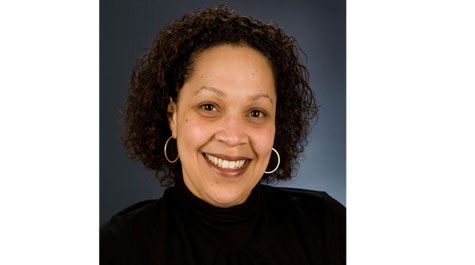W&M to offer screening, discussion of Nate Parker’s ‘The Birth of a Nation’
William & Mary will present an educational screening of Nate Parker’s “The Birth of a Nation” and two related discussions at the university on Feb. 3.
The event is an effort by W&M faculty to connect the people of Hampton Roads with a critical moment in the area’s history, according to Artisia V. Green, associate professor of theatre and Africana studies and the event coordinator.
It is sponsored by the Africana Studies Program, Center for Student Diversity, Film and Media Studies Program, Lyon G. Tylor Department of History, Sharpe Community Studies Program, Dean for Educational Policy Lu Ann Homza, African Cultural Society, Students of the Caribbean Association and Black Student Organization of William & Mary.
“Our goal is to form a bridge between the campus and community,” said Green, “so that we can reflect on and discuss Nate Parker's provocative interpretation of a piece of our local history.”
The 2016 movie, which takes its title directly from D.W. Griffith’s 1915 film of the same name, tells the story of Nat Turner, an educated enslaved man and his decision to lead a violent rebellion against the white residents of Southampton County, Virginia in 1831.
According to the Nat Turner Project, an American history archival database managed by Widener University, Turner’s uprising led to the murder of 55 white men, women and children and gave cause to the governments of many southern states including Virginia to revise laws applicable to enslaved and free black people.
The day’s event will begin with a brown bag-lunch at Trinkle Hall at noon with a lecture on “Nat Turner Bones: Reclaiming an American Rebel” by W&M alumna and historical advisor to the motion picture, Kelley Deetz ’02. Deetz’s research is featured on the cover of the January/February issue of National Geographic History Magazine.
Deetz, who recieved her Ph.D. from the University of California, Berkeley, believes that her analysis will give attendees a glimpse at how she is working to locate Turner’s physical remains and philosophically set his legacy alongside his white equivalents.
“My discussion introduces Turner as a man trapped in a time with a choice, a choice that eventually cost him his life,” said Deetz. “Naming him as an American rebel puts him firmly in conversations with his white counterparts. [After his execution,] Turner’s body was dismembered, and parts were turned into relics then gifted or sold after his death. The reclamation aspect speaks to both the history and the physical remains of Turner both of which were discarded in their respective ways. To redefine, reintroduce and eventually reinter his body and his legacy is what my work is about.”
At 5:30 p.m. in the Sadler Center’s Commonwealth Auditorium, there will be a panel discussion about the film consisting of scholars whose expertise includes Nat Turner's legacy and the African-American experience.
The group will feature W&M faculty members Robert T. Vinson, Frances L. and Edwin L. Cummings Associate Professor of History and Africana Studies and Suzette Spencer, visiting assistant professor of English along with the facilitator of the Nat Tuner Trail in Southampton County, H. Khalif Khalifa and W&M students Amirio Freeman ’17 and PhD. candidate, James Padilioni ‘14. They will discuss the film’s cultural impact and its relation to today’s American society.
Also scheduled to appear on the panel is Leslie M. Alexander of the Ohio State University. She is the author of the article titled “‘Birth of a Nation’ Is an Epic Fail.” Her commentary was featured in the news magazine The Nation and describes the film as not being historically factual from its representation of slavery to the depiction of the roles played by black women leading up to and during Turner’s rebellion.
“In the article, I argued that the film was an ‘epic fail’ because it is historically inaccurate,” said Alexander. “The movie does not do justice to Nat Turner, his rebellion, or the experience of enslavement in America. After receiving the invitation to speak on the panel, I was honored to come to William & Mary to discuss these important issues with students and faculty.”
The screening of Parker’s “The Birth of a Nation” will take place in the Commonwealth Auditorium after the panel discussion and will begin at 6 p.m. Following the screening, there will be a reception and post-film discussion in the Tidewater Rooms of the Commonwealth Auditorium.
Organizers of the day’s activities believe that movie’s showing will help to provide followers of American history a better understanding of Turner’s motivation and how it may affect today's society.
“Parker's cinematic interpretation of Turner's contribution to American history while primarily focusing on issues of race and power with a glance towards concerns of gender and sexuality is a timely public appeal to remain vigilant in the confrontation of racism and structural oppression as well as all forms of subjection that challenge an individual's right to express their life and willpower to their fullest and most meaningful potential,” said Green.
All events held in the Sadler Center are free and open to the public, but an RSVP is required to attend the 12pm brown-bag lunch in Trinkle Hall. Please RSVP by Jan. 30 for the brown-bag lunch, with Tiffany Foye at tfoye@wm.edu or (757) 221-2457.


















